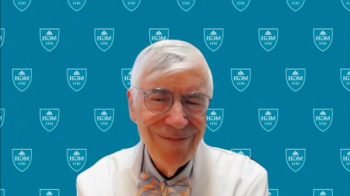
FDA Approves Delandistrogene Moxeparvovec, First Gene Therapy to Treat Duchenne Muscular Dystrophy
The therapy, to be marketed as Elevidys, is approved for the treatment of ambulatory pediatric patients aged 4 through 5 years with DMD who have a confirmed mutation in the DMD gene.
Sarepta Therapeutics today revealed that FDA has approved delandistrogene moxeparvovec-rokl, the first gene therapy to treat Duchenne muscular dystrophy (DMD). The company described the approval as a “watershed moment” in the history of treatment Duchenne in a
The therapy, to be marketed as Elevidys, is approved for the treatment of ambulatory pediatric patients aged 4 through 5 years with DMD who have a confirmed mutation in the DMD gene. According to the statement, this is an accelerated approval, based on expression of therapy-driven micro-dystrophin seen in patients who are treated with this novel therapy. Ongoing approval may be contingent on confirmatory trials.
Of note, the statement said, the therapy “is contraindicated in patients with any deletion in exon 8 and/or exon 9 in the DMD gene.”
DMD is caused by DNA variants in the DMD gene, causing muscle wasting that worsens over time. It affects 1 in every
“Duchenne is a relentlessly progressive, degenerative disease, robbing children of muscle functioni,” Jerry Mendell, MD, pediatric neurologist and principal investigator in the Center for Gene Therapy at Nationwide Children’s Hospital, said in the statement. “The increases in Elevidys dystrophin expression and the functional results that we see can make a difference in the lives of our patients.”
In their statement, Sarepta officials say delandistrogene moxeparvovec address the root cause of Duchenne “by delivering a gene that codes for a shortened form of dystrophin to muscle cells, known as Elevidys micro-dystrophin.”
FDA’s accelerated approval, they said, is based on biologic and empirical evidence of increases in therapy-driven micro-dystrophin protein expression in skeletal muscle, supported by 2 clinical studies: SRP-9001-102, and SRP-9001-103 as well as safety data from these studies and earlier data.
Adverse events (AEs) seen in patients treated with the gene therapy include acute serious liver injury, immune-mediated myositis and myocarditis. Common AEs seen in studies included vomiting, nausea, pyrexia and thrombocytopenia.
A confirmatory phase 3 trial, EMBARK, is under way and will be completed, serving as a post-marketing study. Topline results are anticipated in late 2023.
“The approval of Elevidys is a watershed moment for the treatment of Duchenne. [This] is the first and only gene therapy approved for Duchenne, and this approval brings us closer to our goal of bringing forward a treatment that provides the potential to alter the trajectory of this degenerative disease,” said Doug Ingram, president and chief executive officer, Sarepta.
“As we prepare to launch Elevidys, we should acknowledge and celebrate the decades of dedication and work from the patient community, families, clinicians, and our Sarepta colleagues that resulted in today’s approval,” he said.
Newsletter
Stay ahead of policy, cost, and value—subscribe to AJMC for expert insights at the intersection of clinical care and health economics.







